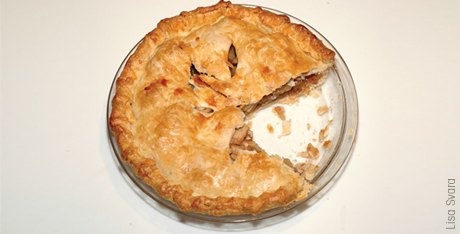The recuperation began with crutches, ice, rest, meds, resistance-less bike peddling, and non-weight-bearing exercises. At my two-week follow-up appointment after Femoroacetabular Impingement (FAI) surgery, my surgeon told me to wean myself from crutches.
“It might take you a few days,” she said. “Start by going from two crutches to one crutch.”
I followed her advice. Inside my home I walked without crutches in four days, but for my walks outside it took me two weeks to say goodbye to my last crutch. You see, without crutches I hobbled along like a drunkard — slow, tentative and unbalanced. I was afraid of falling, tripping over uneven sidewalks, or being knocked over by a well-meaning child or an enthusiastic dog.
Roberta, my PT, guided me week after week with new strengthening exercises and phrases like: “Bend to your left to even yourself out. Lean forward as you walk, like you’re walking into the wind.” On occasion she even pretended she was a metronome to inspire me to walk in even steps.
Learning how to walk again wasn’t easy, especially since my gait had been compromised for so long. I’ll admit it: I was frustrated with my turtle-like pace, but as I came to understand the benefits of walking slowly, I began to see the gift behind the challenge.
“Bend to your left to even yourself out. Lean forward as you walk, like you’re walking into the wind.”
Walking slowly I was able to be more present to my surroundings: the brisk March air, the gray low-hanging clouds, the cool drops of rain on my cheeks, the scurrying squirrels, the pink petals of the cherry blossoms scattered like confetti on the pavement, and the different colored and textured tree barks: the gray ridged bark of the maple, the smooth peeling cinnamon-colored bark of the madrona, and the dark grey eyes on the off-white bark of the birch.
I was also able to be more present to my neighbors. One morning, as I hobbled down the street on two crutches, I stopped to admire Bonnie’s garden with its orange poppies and yellow daffodils. Years ago our sons had attended the same Montessori pre-school. These days our sons attend different middle schools, and we hardly see each other. Seizing the moment, I invited her to join me on a walk around the block. She lay down her gardening tools, removed her gardening gloves, and around the block we walked, filling each other in on our children and on our lives.
One afternoon, as I hobbled along on one crutch, a woman walked toward me leaning on her walker. I had not seen this woman before.
“How are you?” I asked as we passed one another.
“I’m trying to be hopeful,” she said.
“That’s good,” I responded. “I’m trying too.”
We smiled, and onward we moved, she in her direction, and me in mine.
One early evening, as I hobbled along crutchless, I found Joan on her knees tending to her roses. She complimented me on my progress and asked how I was. I could have said, “Fine. I’m doing better,” and walked on, but I had just learned that I would have to spend the next four or five days re-inputting edits to a document I had worked on in sections because the sections would not transfer back into the original, and I was sad. So I decided to tell her. She listened with love and offered words of comfort.
“Oh I’m lookin’ for my missin’ piece …”
As I think about these slow walks down my street and around my block, I’m reminded of Shel Silverstein’s children’s story The Missing Piece about a circle that “was missing a piece,” (imagine a pie with one slice eaten). And it was not happy. So it set off in search of its missing piece. And as it rolled it sang this song — “Oh I’m lookin’ for my missin’ piece …”
This circle sang as it journeyed up mountains, over oceans and through jungles. On occasion it would stop to talk to a worm, smell a flower, play with a beetle, or have adventures, and it would stop to insert any triangular shapes it found along the way, but none of these shapes fit quite right — until one day it found just the right piece to make it whole.
In celebration of its newfound wholeness, this circle rolled so fast it had no time to talk to worms, to smell flowers, to play with beetles, to appreciate adventures, or even to sing. So what did this circle do? It set down its piece and it began to sing, “Oh I’m lookin’ for my missin’ piece …”
This circle understood that it was somehow more whole when it was moving slowly than it was when it raced along. I found the same to be true for me. My early weeks of recuperation were a reminder. A reminder that moving slowly is a gift I don’t give myself often enough. Do any of us?



